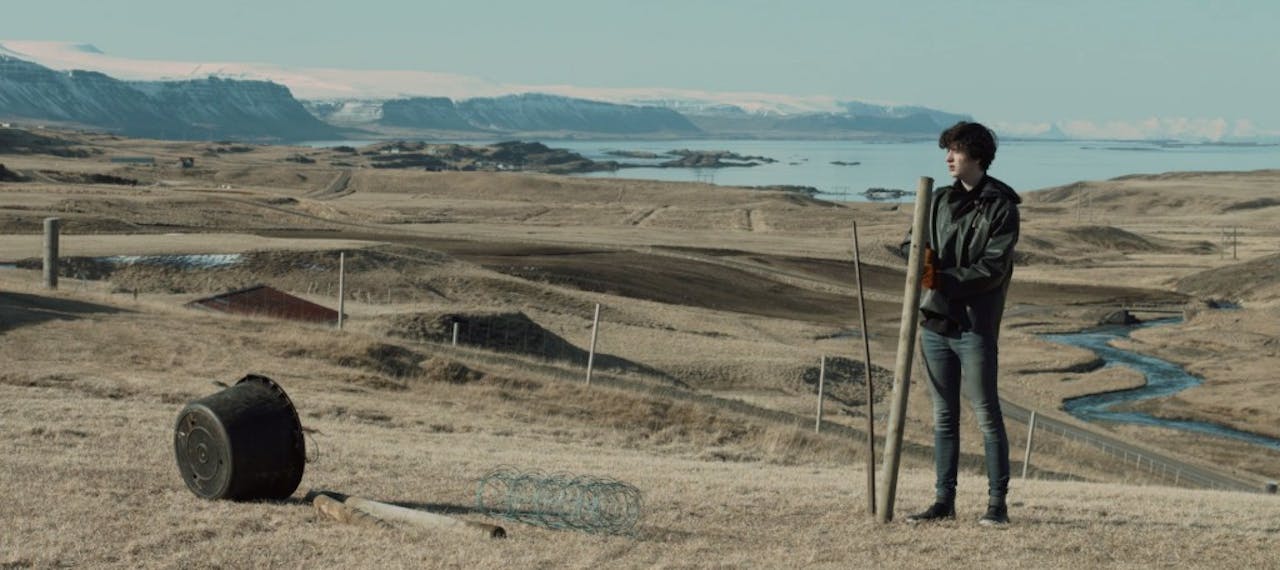The History of the Icelandic Film School

The History of the Icelandic Film School
The first courses under the name the Icelandic Film School were held in the fall of 1992 at MÍR (The Icelandic-Soviet Cultural Center) facilities at Vatnsstígur 10 in Reykjavík.
There were twenty-three students then and seventeen teachers and lecturers, among them many of the Iceland’s top filmmakers. The courses were conducted over a period of three months and the program concluded with the production of two narrative short films. The founder of the school was filmmaker Böðvar Bjarki Pétursson. Among those attending these first courses were various individuals who would go on to make names for themselves in the Icelandic film industry.
From 1992 to 2000 the school offered a variety of courses with the goal of preparing young people for further studies or a professional career in the film and television industry. The main emphasis of the school at that time was on a very comprehensive semester-long course. In the summer there were various shorter courses on offer. In the year 2000 the decision was made to strengthen the operation of the film school and adapt its activities to Iceland’s general educational system. In collaboration with a number of specialists, a new curriculum was organized. The one-semester program was still on offer but now in a somewhat different form, so that it in fact became the first semester in a prospective two-year program.
The first curriculum of the school was then sent to the Ministry of Culture and Education late in 2002. In the fall of 2003 Tómas Ingi Olrich, the then Minister of Culture and Education, granted the school formal accreditation for a two-year vocational course at a college level. This marked the first step towards the Icelandic Film School becoming a formal accredited school within the Icelandic educational system.
The curricula were developed further and in the fall of 2004 it was announced that three additional departments were in the offing and in 2005 the curricula for these new departments were presented to the Ministry of Culture and Education. The plan was to offer specialized studies in different fields as at most of the better schools abroad. In 2007 the Ministry of Culture and Education, after various development work, went on to grant the school accreditation for the three new fields of specialization.
Since its beginning the film school has operated in close cooperation with filmmakers’ interest groups, production companies and TV channels. In fact, the school and the TV channels have collaborated on a number of different projects. The school has also collaborated with numerous educational institutions on many courses over the years.
The school has been fortunate that filmmakers and educators have offered their talents as teachers. More than two hundred instructors and lecturers, both Icelandic and foreign, have taught at the school. Most of them are active in one or another aspects of filmmaking. The school has graduated hundreds of students from various departments. These graduates are now employed in various places in the Icelandic film and television industry and have exerted considerable influence there.
Employees of the school have been quite mobile, which is the nature of the industry. The faculty and staff are working filmmakers who share their time between the school and their projects.
Over the years the school has organized and taken part in various courses and collaborative projects, among which are:
- A continuing education course together with the TV channels.
- Various projects with the Students’ Innovation Fund.
- Various projects with the TV channel Screen 1.
- A course in the use of visual media as a teaching tool with the Teachers’ Association.
- A news production course with students in the practical media studies program at the University of Iceland.
- The production of a documentary about creative work at nursery schools with Sæborg Nursery School.
- The operation of a drama school for children and teenagers with the Municipal Theater of Reykjavík.
- A summer course in filmmaking with Channel 2 and the Icelandic Film Fund.
- The production of six dramatic telefilms (RRX 3.rule) with the National Broadcasting Service.
- A filmmaking course with Hitt Húsið Youth Center.
- The production of a documentary about the Elliðaár valley with five primary schools and the National Board of Energy.
- A course in visual media with the history department at the University of Iceland.
- A screenwriting course with the Playwrights’ Association and the Icelandic Film Fund.
- A course in the making of short films with the Commercial College of Iceland.
- A course in the making of radio documentary series with the University of Greenland, the National Film School of Sweden and Danish State Television, with support from the EU Leonardo Project.